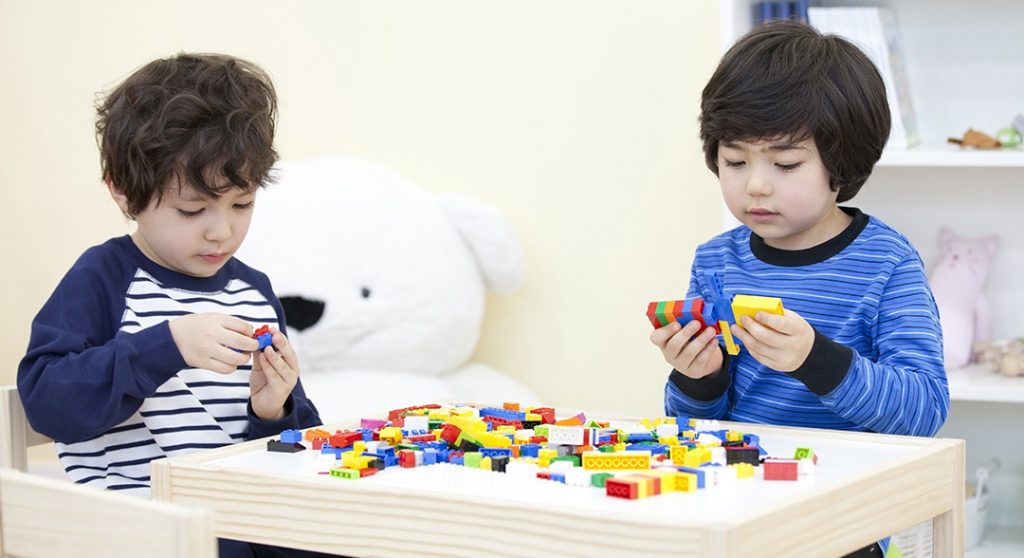Preparing for school or nursery
April 27, 2022

The parent is often referred to as ‘the child’s first teacher’ because this is the adult with whom a child spends a large amount of their waking hours. Parents and family model daily life and routines for children, both consciously and unconsciously.
When a child is ready to enter a group-learning environment, everyday tasks of parenting can provide children with the tools and skills needed to thrive in that setting.
Parents support children in their first experiences with language, numbers, social interactions and negotiating problems, which are the basis for learning in a group setting. When children prepare to join a nursery or pre-school, parents have an opportunity to support that transition by getting involved in the learning environment, by helping out or bringing in objects from home to share.
Emotional development
For a child’s successful transition into school or nursery, it’s important that they can regulate their emotions so they can express their feelings clearly and appropriately. Related to regulation of emotions is self-regulation or the ability to use a range of tools and skills to adapt to environments and situations. Humans begin life in infancy developing self-regulation by adjusting to the typical human routines, such as sleeping, eating and interacting with others.
Children preparing to enter nursery or school have less difficulty adjusting if they’re already able to concentrate on completing a task that requires self-regulation. Interactions with parents, families and carers in activities such as reading picture books, building with blocks or assisting with household tasks (for example, setting the table for a meal or folding clean laundry) help children to learn how to concentrate, focus and complete a task from beginning to end.
Emotional development can be supported by children being encouraged to:
- Use clothing and artefacts to dress up and pretend to be someone else.
- Approach new situations with support to build self-esteem and independence.
- Express their feelings and emotions. For example, laugh, cry and stomp their feet.
- Understand how others feel in varied situations and support those who need it.
- Celebrate other’s accomplishments and successes.
- Explore, create and investigate with various materials and many contexts.
Social development
Children thrive on encouragement, involvement and successful problem-solving. Repeated experiences involving these strategies give children opportunities to understand boundaries and take pride in their accomplishments. When they are given chances to contribute to conversations and household maintenance, they gain a sense of pride and achievement. Ongoing interactions with important figures in a child’s social network assist in social development. These figures could include parents, siblings, extended family members, carers, neighbours, friends, and so on.
Parents can support and extend children’s social development with the following tactics:
- Encouraging contact, interactions and observations of people around the child.
- Allowing the child to observe, practise and refine social skills, such as sharing, negotiating, taking turns and managing conflict.
- Arranging for them to have organised time to play with their peers and guiding them toward socially acceptable and appropriate behaviours when with their peers and in other social situations.
Be positive and provide routine
Generally, children flourish when they experience warm, responsive early emotional ties, positive modelling and supportive guidance of effective social behaviour. Secure and supportive family relationships encourage children to develop social competence beyond the family unit.
Parents may assist children in preparing for and settling into the learning setting by cherishing and encouraging learning at home. Consistency is important for all humans and children thrive on it.
Predictability of routines allows children to anticipate expectations and cope better than when there are inconsistencies in daily life – such as going on holiday and illness. Having a grounded experience in routines will assist the child in being comfortable and adjusting to an organised learning environment.
Each child is an individual who learns and adapts at their own pace. When they are equipped with skills and techniques to confront, adapt to, and adjust to new situations, they have a much better chance of successfully negotiating whatever life throws at them, including settling into a nursery or school environment.
Read stories
Many stories cover the start of school or nursery. Get a book and cuddle up with your child to think about what the children are doing and how they might be feeling. It’ll help to prepare them and allow them to recognise the new parts of their day.
DR BETTY LIEBOVICH, GOLDSMITHS, UNIVERSITY OF LONDON